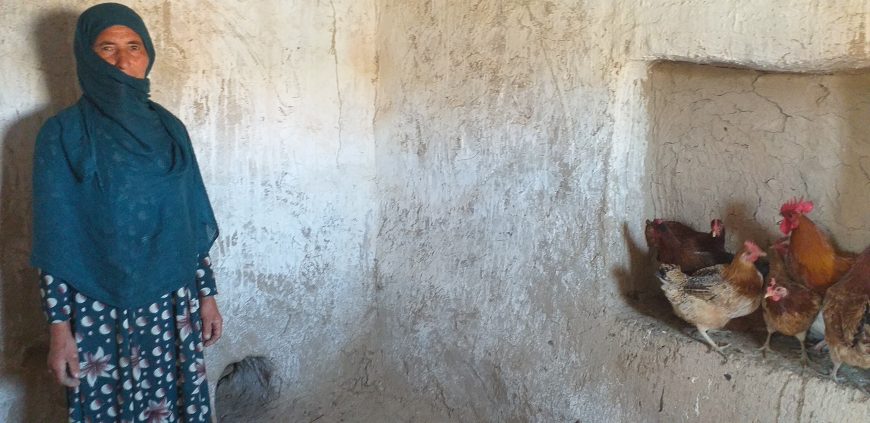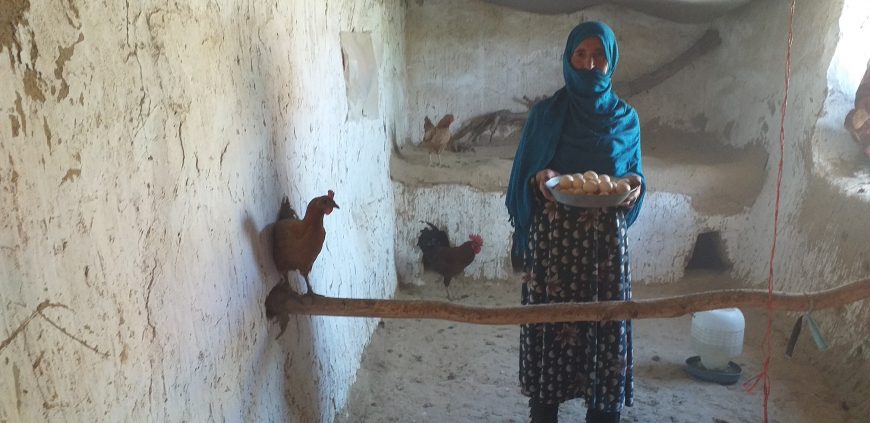Although women in Afghanistan have always played an important role in the agricultural sector, their work is often poorly rewarded, if at all. Women tend to be marginalized in low paid job in the production of opium, livestock and dairy products.
In 2018, ACTED began working in Jowzjan province to boost household-level food production in rural areas helping women earn an additional income through supporting their participation in more productive forms of agriculture. Their involvement has been transformative in fighting the rampant food insecurity triggered by recent droughts.

Before ACTED’s intervention, Gulalai and her 7 family members depended exclusively on the income of one of her sons, following the recent passing of her husband. When her son was injured in a domestic accident, he was forced to continue working despite his condition. At this time, Gulalai could not provide any type of support to help pay the family’s expenses. Eight people were forced to survive on a salary of 100 AFN per day (just over 1 $USD).
Over the past year, Afghanistan faced some of the most severe droughts in living memory. Several consecutive seasons of low rainfall caused a significant decrease in agricultural production as food demand increased. 3.6 million Afghans now live in severe food insecurity because of these droughts, as well as ongoing insecurity.
Chicken production: a new opportunity for income for Afghan women
In February 2019, ACTED distributed 30 chickens to each of the 400 women selected in Jawzjan and Samangan provinces. Each of the women also received complementary animal feed and items such as: antibiotics, vitamins, drinking-pots, gloves, a mask to protect themselves and soap to wash their hands. ACTED staff also oversaw trainings on poultry farming, which ensured the participants would know how to feed and care for the chickens, especially during the winter season.

More eggs, more income, more food
Thanks to the project Gulalai was able to start her own small business by selling eggs on the local market. This in turn led to an increased household income and allowed her to contribute to family expenses. “Every day I get 14 to 20 eggs which I can use in different ways. For instance, I can sell them to cover some expenses or I can cook some at home. Now we have enough income to buy some sweets if any guests visit our house or we can cook them eggs. Up to now I have earned more than 2,000 AFN (25 $USD) by selling eggs.”
Women were really happy to receive assistance from the project, for them and for their family. After the distribution of the pullets they were able to sell the eggs and get 100 to 200 AFN per day